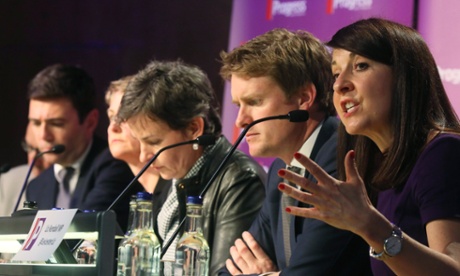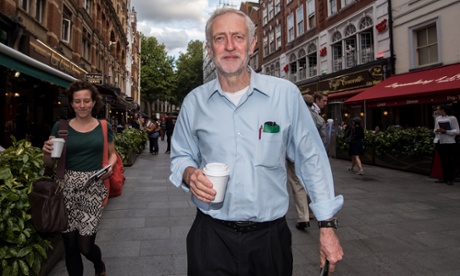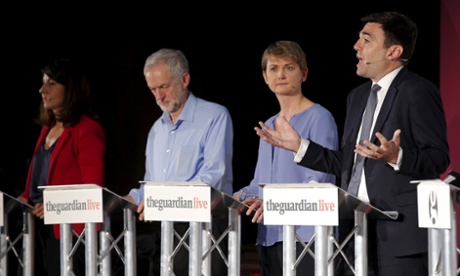Four candidates, four months: the battle to lead the Labour party has gone on so long that the reputations of the protagonists have changed fundamentally. How has each of them fared?
Jeremy Corbyn
Corbyn’s campaign may have changed the path of British political history but nothing was further from his mind when he entered the race.
Having only secured all the 35 nominations needed two seconds before the deadline on Monday 15 June, Corbyn suggested he and his campaign manager, John McDonnell, tour the country. The prospect led McDonnell to warn it might seem like the Last of the Summer Wine on Tour. Instead, McDonnell recalls, they “suddenly found something had changed. Hundreds were turning out to discuss politics.”
There was much that was organised about the Corbyn campaign, including its links with the unions, the young new MPs and existing extra-parliamentary pressure groups, but it is hard to overestimate the extent to which the Corbyn wave is as much a surprise to the Corbyn campaign as to the other leadership campaigns.
Len McCluskey, the Unite general secretary and a big funder of the Corbyn campaign, is frank in admitting some of its success is down to the inadequacies of the main candidates. He recalls: “Some weeks ago, I was listening to the debate and I was listening to Liz, Yvette and Andy and I kind of reached for the nearest sharpest object so I could slit my wrists because of the blandness and sameness of what they were saying.”
There has also been an organised side to the campaign masterminded by the level-headed Simon Fletcher, chief of staff to Ken Livingstone as London mayor. The campaign has put across a string of policy papers, many anodyne, some interesting, but it has also been careful to protect Corbyn from the extended broadcast interview. Many of his positions have started to fudge as victory nears.
The campaign has existed in a rarefied atmosphere of an internal party election, rejecting all criticism as the product of a right-wing media. No one yet knows whether Corbyn on re-entry into normal politics will simply crash and burn, or instead defy his own expectations and carry on making history.
Andy Burnham
Burnham, or at least the Andy Burnham campaign, was making desultory calls on Thursday to test out Labour MPs to see if they were interested in serving in a Burnham shadow cabinet.
They seemed job offers made more in hope than expectation. Burnham himself jokes more times than permissible that the leadership campaign has gone on so long even he has forgotten the time when he was billed as frontrunner.
At the outset, Burnham had the money, the machine and the profile to win. He built up a phalanx of support in the parliamentary party. He had an easy authority when he spoke and he understood something was rotten with modern retail Westminster politics.
But in terms of policy his team’s thinking was either unoriginal recasting of the Labour manifesto or too micro to have much impact.
His plans for nationalising railways or social care were, for instance, well trodden if decent ground. The late and unexpected entrance of Corbyn into the campaign changed the calculus that the vote on the left was secure for Burnham.
Doubtless, his team will claim his campaign came undone over the welfare vote, when Harriet Harman asked the party to accept aspects of the government welfare reforms. Burnham expressed his public opposition ahead of a shadow cabinet meeting, but then accepted a messy compromise, saying he was a loyal Labour man.
Although the compromise reached was comprehensible to Westminster insiders, outside the bubble that Burnham said he so understood, it looked a mess, and Burnham a flip-flopper.
Yvette Cooper
Yvette Cooper had the advantages of a formidable intellect and a strong track record both in government and as a shadow home secretary. Yet somehow her campaign launched as if a damp squib was the height of her ambition.
She has admitted she was shell-shocked by the election defeat, and had found her husband, Ed Balls, losing his seat difficult to take.
Some of the opening themes around women in technology, child poverty and sex discrimination appeared technocratic, bloodless and even evasive.
It was only when she finally mounted a clear full-frontal attack on the politics and economics of Jeremy Corbyn, followed by her brave decision to go out in front with the refugee crisis, that her campaign came alight. Suddenly her values were on display, and her reputation of running from her shadow was gone.
A Cooper leadership looked, unlike Corbyn’s, as if it might be starting on the front rather than the back foot. But it looks as if it was all too late.
Liz Kendall
No one has written a clearer critique of what went wrong with the Liz Kendall campaign than the candidate herself in what was in effect her concession speech on Thursday.
She admitted that in her desire to confront the party with the harsh truth of the reasons for the election defeat she may have asked the party to swallow too much. She said: “Perhaps I was too blunt, especially at the beginning when so many party members were still reeling from our terrible defeat.”Some Blairites that did not support her felt that she forgot the essence of Blair’s politics – the determination to win elections. Instead, her defence of free schools, welfare cuts and defence spending of 2%, to some Blairites, appeared like kamikaze politics. The party had changed since 2010, when David Miliband won the leadership among the membership, and was simply not in a mood to accept pollsters’ messages that voters did not trust Labour on the deficit or welfare. She might have been the candidate the Tories feared, but Labour membership wanted a candidate they loved.
As soon as the constituency nomination process started, it was clear she had next to no political base. Mainstream Labour emerged to be marginalised Labour. Whatever organisational success Progress, the Blairite group, was supposed to have secured over the years was not visible to the naked eye. No effort was made, for instance, to recruit moderate Labour voters into the registered supporters section, and perhaps there was no candidate to inspire them to join in the way the modest Corbyn did.
Nevertheless, Kendall withstood some vile sexist and thuggish attacks in the campaign with humour and drive. She was perhaps the most modern of any candidates, and it was not her fault that others such as Chuka Umunna crashed and burned, leaving her centre-stage. She will return.











